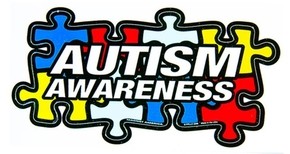Music is one of the connecting features of every culture. As it comes from such a fundamental place in the human psyche, it has many medical uses as well. One of the uses of music that is not known about as well in modern society is as a treatment for autism.
What Music Does to the Body
Music is a highly advanced form of communication. However, it does not require a great deal of verbal ability, which would keep it from working for some people who suffer from autism. Music can be easily adapted to any culture and to any level of communication.
Music and Autism
In the hands of a trained professional, music can serve as a cognitive and an emotional lever that can tap into many deep rooted problems that autistic people are known to have. Music therapy can help with social skills, self-reliance, sensory issues, focus and motor skills. The best part about this therapy is that it does not have to be imposed directly; many of the positive effects of music come from just placing it in the background.
A BCBA, Board Certified Behavior Analyst, says music therapy can be adapted to suit the individual needs of autistic patients. Because music is organized in ways that are very similar to the patterns of movement and thought in any person, a trained musical therapist can respond to the movements and even to the screams of an autistic patient. All of these communication methods have rhythm and pitch and can be organized in musical terms. Autistic patients are able to feel more comfort with this type of therapy because of the automatic connection between music and this type of communication.
The Future of Music Therapy
Many educational institutions have begun to recognize the value of music in autism therapy. Some programs have been formed in order to combine the positive aspects of musical therapy with the resources of state schools and private medical facilities. There are also some institutions that offer treatment from board certified music therapists. The American Music Therapy Association, or AMTA, approves a 1200 hour clinical training course that prepares a musical therapist for a standardized test that is administered by the Certification Board for Music Therapists, or CBMT. Children on individual education plans, or an IEP, can receive the benefits of this training—ask your school or trusted educator for more details on how this may be able to help your child if your child is still in school.

